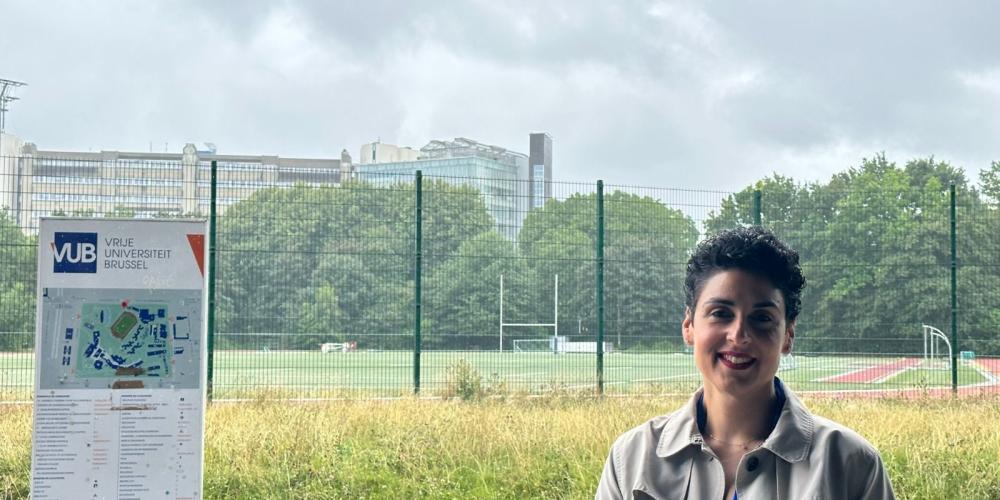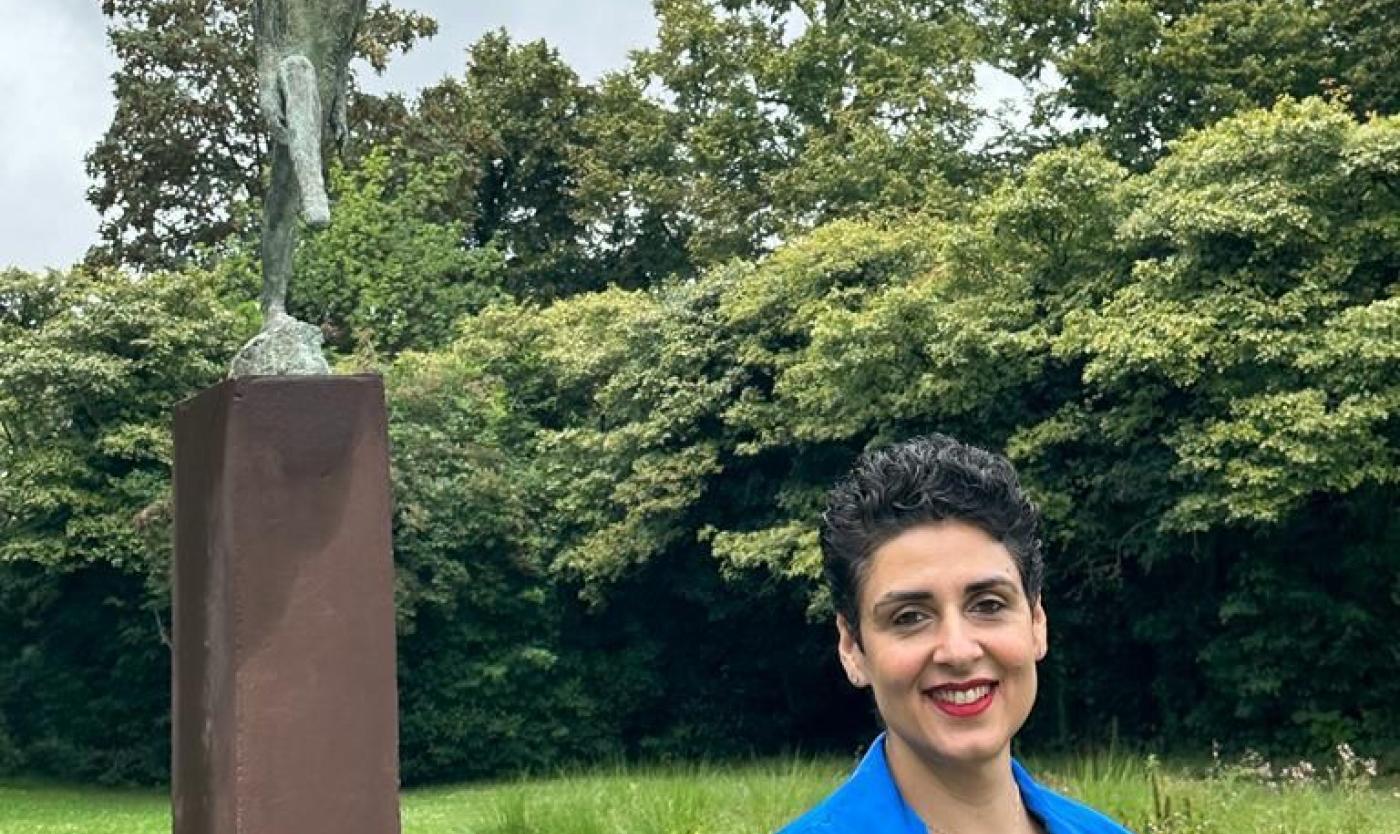
A very warm welcome to VUB! Could you briefly introduce yourself to the VUB community?
It is always difficult to position oneself in disciplinary terms, particularly as boundaries have always been and are becoming more and more porous. I often self-identify as a Critical Sociolinguist and Discourse Analyst.
My work involves three interrelated strands: A. Leadership and Teamwork in complex professional contexts, Organisational Change, Identity, Gender, Language and Sexuality. B. Multilingualism, Language Policy/Practice-Ideology, Migration and language, Intercultural Communication. C. Innovative pedagogies, Internationalisation of Education, Curriculum Development, Multilingual pedagogies.
I am a senior researcher and I have published extensively in my areas of interest. I am particularly interested in establishing synergies and joint research opportunities and I have the privilege to be associated with excellent universities and departments around the world. Currently I am Distinguished Visiting Professor at Aalto University in Finland, Visiting Professor at Monash University in Australia and Research Associate at Victoria University of Wellington, New Zealand.
I have also been in positions of educational leadership since the beginning of my academic career. In this context, I have been actively leading curriculum change in the last 15 years. I have gained a National Teaching Fellowship in 2019 and PFHEA status in 2021 and I am fully committed to pedagogic innovation and education for global citizenship. I work nationally and internationally on leading the development of a community of practice on re-imagining research led education and embedding innovative multilingual curriculum design in the HE offering. I have been working on University Alliances and strongly support transnational collaboration. This is also relevant to my EUTOPIA role as I am leading EUTOPIA’s curriculum development. In this context I have had the opportunity to work with VUB colleagues both from BCLS and the wider university community. I am looking forward to more and further work in the coming months.
What do you hope to achieve within the term of the Chair?
I firmly believe we can only address complex questions and, more importantly, find solutions if we build sustainable global relationships. I have been working with BCLS colleagues for some years now and we have established an exciting programme of work that involves traditional academic outputs, such as publications and conferences. This fruitful collaboration grew through the EUTOPIA alliance which highlights the role of such network for enhancing transnational collaboration and teaching, learning and research development. My aspiration, and hope, is that we go beyond that; we create a deep partnership and a structure for innovation led by our universities. I am looking forward to exploring new questions, meet new colleagues, learning together and also having the opportunity to spend time with students.
What are you most looking forward to in the context of the planned activities?
The value of strong relationships and university, bilateral, transnational collaboration for the quality of research collaboration is well established in Higher Education. I am certainly delighted to have the opportunity to enable synergies between University of Warwick colleagues and the Brussels Centre for Language Studies and to consolidate the already strong relationship I developed with the VUB colleagues through my EUTOPIA role and research initiatives. This involves projects such as the EUTOPIA Seed Funding Project on Internationalisation and the development of a Horizon 2020 proposal on Multilingualism and Linguistic Diversity we intend to finalise by February 2024.
I also look forward to working with early-career colleagues in exciting new projects and initiatives.
Beyond that, I am keen to work together with colleagues in establishing structural connections between our departments but also beyond that, with our global partners.
Looking into the future of research collaboration, I am of the view that we need to find ways to operate in global, interdisciplinary, networks and to socialise ourselves, and our students, to a collaborative/team way of working and researching. This is not the main model in Social Sciences and Humanities, and I would like to contribute to change in that domain.
Finally, Brussels is a living lab for studying and doing multilingualism and I welcome the opportunity to learn in and through engaging with the city.

Do you think there are opportunities teaching/research synergies between Warwick and VUB?
Most certainly. There are already significant structural connections between VUB and Warwick both based on the foundation of bilateral collaboration and through our EUTOPIA partnership. For our discipline, the Learning Community on Multilingualism has been a significant incubator of innovation for both education and research. Over the years we have developed joint pedagogic initiatives, piloted a blended offering for credit and as a co-curricular activities and initiated a microcredit. The Learning Community on Text and Discourse has also provided opportunities for colleagues in Modern Languages and Translation Studies to enhance the experience of students and enable them to participate in language cafes and practice language in use.
Our current work extends our portfolio of activities on multilingual education, language policy, linguistic diversity and social justice as well the application of this work through a network of societal partners. I expect through our collaboration to provide a new frame for multilingualism, multilingual research and pedagogy. I am keen to help establish this agenda and pave the way for more synergies in the future.